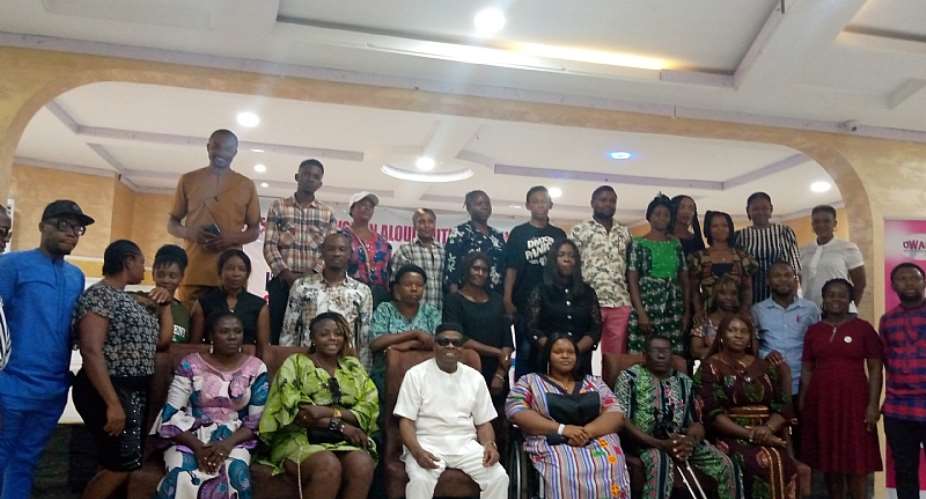Hearing-impaired women in Anambra State have appealed to the 36 state governors and the federal government of Nigeria to improve equal access to healthcare services for people living with disabilities, especially the deaf community.
These women, who have faced discrimination, stigmatization, and denial of access to healthcare facilities in many parts of Nigeria, particularly Anambra State, reported that these issues have led to pregnancy losses, other health complications, and even deaths among their members.
The women voiced their concerns during the official launch and dissemination of research findings on inclusive sexual and reproductive health services for deaf women in Anambra State. This event was organized by the Abuja-based NGO, Deaf Women Aloud Initiative (DWAI).
Panelists at the event, including a hearing-impaired participant, Ms. Esther Emele, and Mandela Washington Fellow, Ms. Chidinma Ajemba, shared their experiences at public health institutions in Anambra State. They stressed that providing equal access to all individuals would improve healthy living, collaboration, and a sense of belonging.
DWAI Project Officer, Ms. Patience Etim, presented the research findings, revealing that deaf women and girls in Anambra State face numerous barriers when accessing health services due to systemic, cultural, and logistical issues.
"The needs assessment revealed communication barriers, lack of awareness and training among healthcare providers, and experiences of stigmatization and discrimination. The study identified pathways to equitable health information and services for deaf women," she said.
According to Etim, the study employed an inclusive data collection approach, allowing 352 deaf women and girls from 21 council areas to participate. A focus group discussion was also held with participants from healthcare backgrounds and the deaf community.
"These challenges contribute to a healthcare environment that is not only inaccessible but often unwelcoming to deaf individuals. We call on the government to employ sign language interpreters in health facilities and fully implement the disability rights act and sexual and reproductive health policies for effective and inclusive healthcare service delivery," she added.
In her remarks, DWAI Executive Director Hellen Beyioku-Alase urged Governor Chukwuma Soludo to urgently address the needs of people with disabilities in the health sector. She emphasized the importance of hospitals keeping data on people with disabilities accessing their facilities and providing information for deaf women through video formats and sign language.
"The findings reveal significant communication barriers, lack of accessible health information, and numerous challenges in accessing quality healthcare. However, they also point to clear pathways for improvement. By implementing the recommendations in this report, we can enhance interpreter availability, provide targeted training for healthcare providers, and develop inclusive policies that prioritize the health and wellbeing of deaf women and girls. It is a call for healthcare providers, policymakers, community leaders, and all stakeholders to come together in solidarity and commitment. Together, we can build a health system that is truly inclusive where every woman and girl, regardless of their hearing ability, has access to the care and support they need," she stated.
Contributing to the discussion, State Chairman of the Joint National Association of Persons with Disabilities (JONAPWD), Comrade Ugochukwu Okeke, argued that keeping accurate data on people with disabilities accessing health facilities would help policymakers and others advocate for enhanced and inclusive healthcare delivery in Anambra State.
Representatives of the Anambra State Ministry of Women Affairs, Princess Bibiana Nwankwo, and the Ministry of Health, Dr. Uju Okoye, promised to relay the messages to their respective institutions to inspire government action toward meeting the demands.
Earlier, the Chairman of the Anambra State Disability Rights Commission, Barrister Chukwuka Ezewuzie, commended the NGO for choosing Anambra State for the program. He argued that the initiative would guide all towards a more inclusive future and transform the healthcare system.





 Court of Appeal yet to hear Rev Kusi Boateng's contempt suit against Ablakwa, ca...
Court of Appeal yet to hear Rev Kusi Boateng's contempt suit against Ablakwa, ca...
 Why can't Bawumia pick his own running mate; NAPO was imposed on him as his runn...
Why can't Bawumia pick his own running mate; NAPO was imposed on him as his runn...
 BoG grilled over $11.2bn discrepancy in remittance data
BoG grilled over $11.2bn discrepancy in remittance data
 Call off strike before we hear your case - Labour Commission tells CETAG
Call off strike before we hear your case - Labour Commission tells CETAG
 If Afenyo Markin doesn’t present the Free SHS bill today we shall call him names...
If Afenyo Markin doesn’t present the Free SHS bill today we shall call him names...
 Afenyo Markin appoints Kwaku Kwartey as spokesperson on Economy Committee
Afenyo Markin appoints Kwaku Kwartey as spokesperson on Economy Committee
 Failed leadership fuels monetisation of politics in Ghana – Prof. Kobby Mensah
Failed leadership fuels monetisation of politics in Ghana – Prof. Kobby Mensah
 Election 2024: NAPO must work on perceived arrogance – Political Scientist
Election 2024: NAPO must work on perceived arrogance – Political Scientist
 Azumah Nelson Sports Complex in sorry state
Azumah Nelson Sports Complex in sorry state
 Nurse, Midwife Educators’ Society threaten strike over delayed promotion
Nurse, Midwife Educators’ Society threaten strike over delayed promotion
